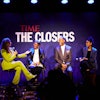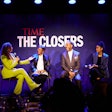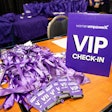The rules of content marketing have changed over the last five years, and now more than ever, quality trumps quantity. “Anyone can create content,” says Joe Pulizzi, founder of Content Marketing Institute, which produces the annual Content Marketing World Conference & Expo, “but very few companies do it right.” Consider this breakdown of everything you need to know about content marketing for your events.
Who?
Events are multigenerational, and your content should be too, says Sherry Beck Paprocki, author of “Content Marketing: 50 Ways to Tell Your Story” and president of American Society of Journalists and Authors. “Planners expect to reach 25- to 75-year-olds,” says Paprocki, who has overseen a variety of national conferences. “When you span a wide age demographic, [you need] niche printed materials, websites, apps, daily e-blasts and sessions specific to each age range.”
What?
Paid social media content is in; organic posts are out. This wasn’t the case several years ago when many content creators tried to build an audience organically. Over time, companies saw little engagement as Facebook made changes to its algorithms, which act as gatekeepers to content shown in fans’ newsfeeds. “A lot of companies now see social media as pay-to-play,” says Pulizzi. “They know if they are doing something on social, they can’t control Facebook algorithms.”
When?
“Instead of [promoting content] for the week of a conference only, do it all year,” says Pulizzi. Communicate with attendees and deliver value every day. Doing so will make your audience more likely to come to events, as well as spend more money while they are there, he continues.
Where?
It’s in a planner’s best interest to explore what video platforms will work best for their audience. As virtual reality and augmented reality go mainstream, many content marketers, including Ann Handley, chief content officer at MarketingProfs, say video will be bigger than ever in 2017. “Most companies are only now thinking more deeply about how video can give their brand a pulse,” says Handley.
Why?
Before deciding how to tell your story and how it will be delivered—whether it takes the form of an infographic, video, podcast or Facebook Live post—think about the why, says Handley. Start by reviewing your event’s deeper purpose and identity. This will ground your content strategy into something substantive that attendees care about.
“Content marketing is about educating people; it’s not about sales,” says Paprocki. “It’s important to be authentic and transparent while making [valuable] information available to the user.”
One More Thing
Who is pushing out your content might become as important as the content itself. Companies and event organizers used to remove bylines and homogenize content because they “didn’t want to give writers too much power,” says Pulizzi. “Now the benefits of using well-known writers outweigh the negatives,” he says. Attendees often look up event speakers before and after conferences hoping to find additional content from them.















